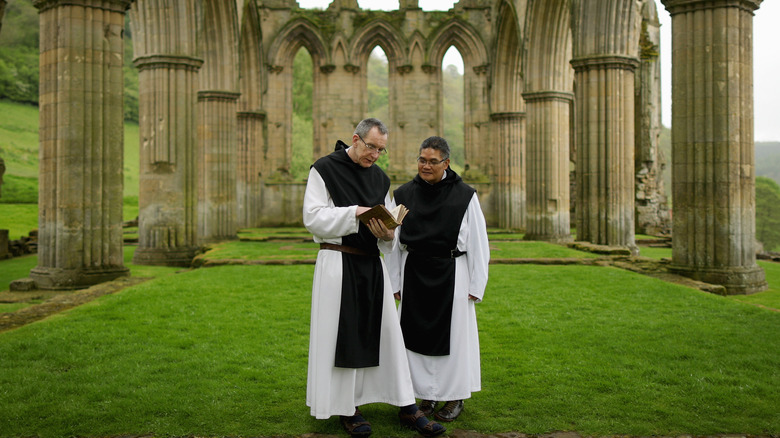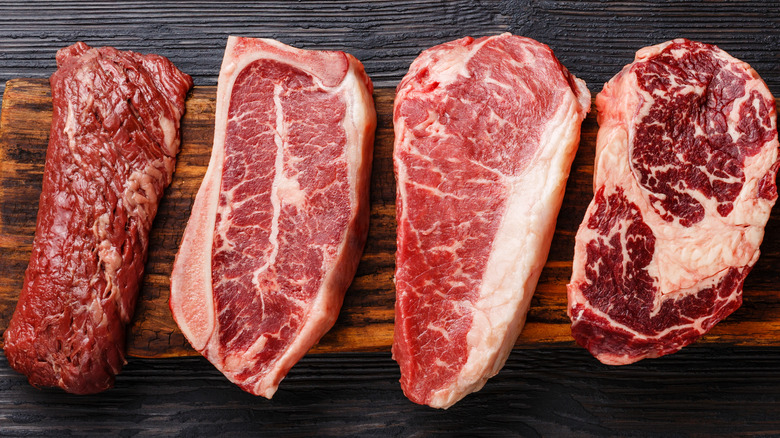What 14th Century Monks Really Ate In A Day
Willpower is a commodity so often in desperately short supply. Anyone who is able to persistently resist the urge to buy more candy bars, pour another drink, or order the greasiest salt-riddled takeout imaginable is unquestionably superhuman. Or, just incredibly boring — it depends on how you look at things.
It would therefore be an impossible challenge for so many of us to suddenly take up the drastically different lifestyle of monks. While such a tough task could make the perfect plot for a reality TV show for attention-seeking celebrities, the chances of actually succeeding would be next to none.
Medieval monks are noted for accepting vows to be without money, forgo sex, and unquestionably follow the orders of their leaders. Monks would frequently live within isolated communities inside monasteries furnished with a church, hospital, and — of course — wine cellar (via BBC Bitesize). However, despite living in apparent luxury that modern-day billionaires would be jealous of, the eating habits of monks weren't quite so sophisticated.
Despite requirements to follow a basic diet, many monks devoured thousands of calories every day
As the delights of fast-food corporations didn't exist in the 14th century, ancient monks were expected to eat a diet focused on grains, bread, legumes, fruits, and vegetables. Special occasions permitted the inclusion of indulgent treats, including cheese, cakes, and dumplings (via The Mediaeval Monk). Lewes Priory Trust records that monks would regularly fill themselves with beans, pottage (vegetable stew), and purple carrots.
The Guardian explains how a rule change in 1336 permitted monks living in Somerset, England, to eat meat twice a week. It is known that before the alteration monks relied on a diet high in calories (eventually reaching up to 7,000 a day, reports The Tablet), which meant the addition of rich meat was not received well by their stomachs. As a result, many monks suffered from severe digestive issues, including constipation and diarrhea.
The ability to eat meat caused such an excitement that the monks dedicated a whole room to it inside Muchelney Abbey, the Independent reports. To cure their blocked bowel woes, it was also noted that monks were advised to eat a recipe packed with fruit extracts to ensure their bodies flowed freely again.

